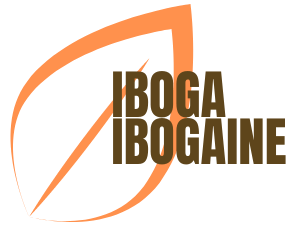The Legality of Ibogaine: What You Need to Know
The Legality of Ibogaine: What You Need to Know
Ibogaine, a psychoactive substance derived from the root bark of the iboga plant native to Central Africa, has gained attention in recent years for its potential therapeutic properties, particularly in the treatment of addiction. However, the legal status of Ibogaine varies significantly across different countries, leading to a complex landscape of regulation and debate.
1. Introduction to Ibogaine
What is Ibogaine?
Ibogaine is a naturally occurring psychoactive alkaloid found in plants of the Apocynaceae family, primarily the Tabernanthe iboga shrub. It has been traditionally used by indigenous communities in Central Africa for spiritual and medicinal purposes, particularly in initiation ceremonies and healing rituals.
Brief history of Ibogaine use
The use of Ibogaine as a psychoactive substance was first documented in the 19th century by European explorers in West Africa. It gained attention in the 1960s and 1970s as a potential treatment for addiction, particularly to substances like opioids and cocaine. However, due to its classification as a Schedule I controlled substance in many countries, research into its therapeutic effects was limited for several decades.
2. The Legal Status of Ibogaine Worldwide
Legal status in different countries
The legal status of Ibogaine varies widely across different countries. While it remains a Schedule I controlled substance in the United States and many other countries, there are some jurisdictions where it is legally available for medical or religious purposes. For example, Mexico, Canada, Brazil, and some European countries allow the use of Ibogaine in specialized clinics under medical supervision.
Regulations and restrictions
In countries where Ibogaine is legal or decriminalized, there are often regulations and restrictions in place to ensure its safe use. This may include requirements for medical screening, supervision by trained professionals, and adherence to specific protocols for administration and monitoring.
3. The Legalization Debate
Arguments for and against legalization
The debate surrounding the legalization of Ibogaine is multifaceted and involves various stakeholders, including policymakers, healthcare professionals, researchers, and advocates.
Supporters of legalization argue that Ibogaine shows promising results in treating addiction, especially when conventional therapies have failed. They believe that legalizing Ibogaine could expand access to alternative treatment options and potentially reduce the societal and economic burden of substance abuse.
On the other hand, opponents raise concerns about the safety and long-term effects of Ibogaine, citing limited scientific evidence and the potential for adverse reactions, including cardiac complications and psychiatric disturbances. They also highlight the risks of unregulated use and the lack of standardized protocols for administration and monitoring.
Current initiatives and movements
Despite these challenges, there are ongoing initiatives and movements advocating for the legalization or decriminalization of Ibogaine in various parts of the world. These efforts often involve grassroots organizations, patient advocacy groups, and researchers collaborating to raise awareness, gather evidence, and promote policy change.
4. Safety Concerns and Medical Oversight
Potential risks and side effects
While Ibogaine has shown promise as a treatment for addiction, it is not without risks. The substance can cause cardiovascular complications, including changes in heart rate and rhythm, which may be life-threatening, particularly in individuals with pre-existing cardiac conditions. Additionally, Ibogaine can induce intense psychoactive effects, such as hallucinations and altered states of consciousness, which may be distressing or overwhelming for some individuals.
Importance of medical supervision
Due to these risks, medical supervision is essential during Ibogaine treatment. Qualified healthcare professionals with expertise in addiction medicine and emergency care should oversee the entire process, from patient screening and assessment to post-treatment monitoring and support. This ensures the safety and well-being of patients and minimizes the potential for adverse outcomes.
5. Ibogaine and Addiction Treatment
Efficacy of Ibogaine in treating addiction
Despite the safety concerns, numerous anecdotal reports and preliminary studies suggest that Ibogaine may be effective in reducing cravings and withdrawal symptoms associated with addiction. Some individuals who have undergone Ibogaine therapy claim long-lasting benefits, including reduced drug cravings, increased self-awareness, and improved overall well-being.
Success stories and testimonials
There are countless success stories and testimonials from individuals who credit Ibogaine with transforming their lives and helping them overcome addiction. These personal accounts often emphasize the profound psychological and spiritual insights gained during Ibogaine experiences, as well as the lasting impact on their recovery journey.
6. The Future of Ibogaine Legislation
Emerging research and findings
As interest in Ibogaine continues to grow, so does the body of research exploring its therapeutic potential and safety profile. Recent studies have shed light on the neurobiological mechanisms underlying its effects on addiction, as well as novel delivery methods and formulations aimed at enhancing its efficacy and safety.
Predictions for future legal developments
While the legal status of Ibogaine remains uncertain in many parts of the world, there is optimism that ongoing research and advocacy efforts will pave the way for meaningful policy change. Some experts predict that Ibogaine could eventually be rescheduled or legalized for medical use in certain jurisdictions, particularly as more evidence accumulates supporting its safety and efficacy.
7. Conclusion
In conclusion, the legality of Ibogaine is a complex and evolving issue with significant implications for public health and drug policy. While its potential as a treatment for addiction is promising, there are important safety considerations and regulatory challenges that must be addressed. Moving forward, a balanced approach that prioritizes scientific research, medical oversight, and patient safety will be crucial in shaping the future of Ibogaine legislation.
FAQs
1. Is Ibogaine legal in the United States?
Currently, Ibogaine is classified as a Schedule I controlled substance in the United States, meaning it is illegal to manufacture, distribute, or possess without authorization.
2. What are the risks of Ibogaine treatment?
Ibogaine treatment carries risks of cardiovascular complications, psychiatric reactions, and other adverse effects, particularly when administered without medical supervision.
3. How effective is Ibogaine in treating addiction?
While Ibogaine has shown promise in reducing cravings and withdrawal symptoms associated with addiction, its efficacy varies among individuals, and more research is needed to fully understand its therapeutic potential.
4. Are there alternative treatments for addiction besides Ibogaine?
Yes, there are various evidence-based treatments for addiction, including behavioral therapies, medication-assisted treatment (MAT), support groups like Alcoholics Anonymous (AA) and Narcotics Anonymous (NA), and residential rehabilitation programs. These treatments are tailored to individual needs and can be effective in helping individuals overcome addiction and maintain long-term recovery.
5. How can I access Ibogaine treatment legally?
Access to Ibogaine treatment legally depends on the laws and regulations of your country or jurisdiction. In some places where Ibogaine is legal or decriminalized, specialized clinics offer treatment under medical supervision. It’s important to research local regulations and seek guidance from healthcare professionals experienced in Ibogaine therapy.
Conclusion
The legality of Ibogaine remains a topic of debate and exploration, with its potential benefits for addiction treatment weighed against safety concerns and regulatory challenges. While some countries have taken steps to legalize or decriminalize Ibogaine under specific conditions, others maintain strict prohibitions due to its classification as a Schedule I controlled substance. Moving forward, continued research, advocacy efforts, and evidence-based policymaking will be essential in navigating the complex landscape of Ibogaine legislation and ensuring safe access to alternative treatments for addiction.


